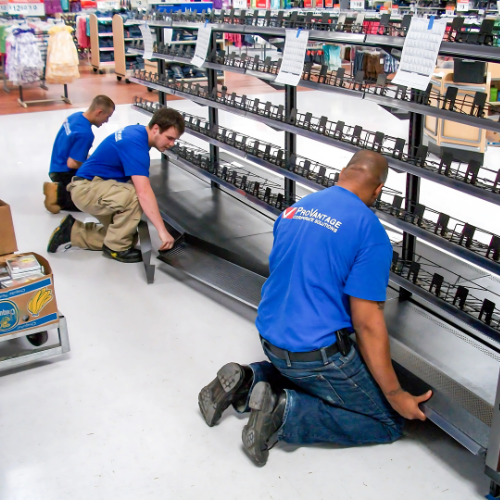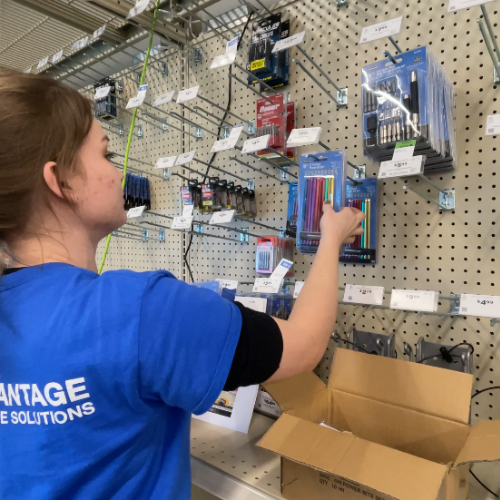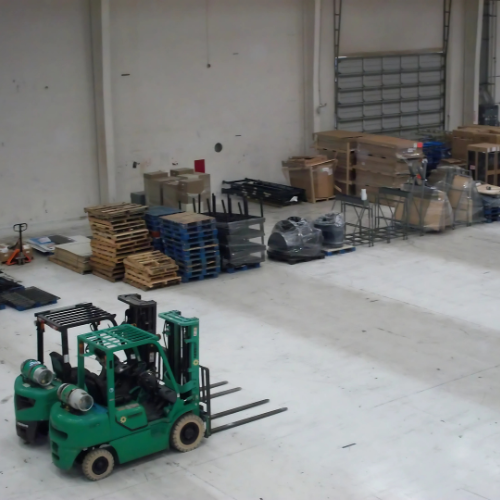Continuous learning is the cornerstone of career growth, irrespective of your industry. At ProVantage, we want all of our employees to grow and reach new career heights, and we believe this starts with consistently learning new skills.
Continuous learning is the driving force behind innovation. It propels us toward mastery in our respective fields and ensures we remain at the forefront of new trends and developments in our workplace.
One of our core values, Innovate to Elevate, actually states, “Embracing creative solutions to be leaders in our ever-changing industry.”
As our industry continues to evolve, we must evolve and change alongside it, or else we are at risk of being left behind.
Continuing your learning journey will provide you with ample opportunities to expand your skillset and introduce you to new and exciting opportunities.
Here are a few tips for effectively learning new workplace skills:
When selecting skills to develop, prioritizing those directly relevant to your career objectives is paramount.
Choosing skills relevant to your current position will help unlock pathways for career progression and bolster your competitive advantage while also elevating earning potential and job stability.
Moreover, acquiring such skills fosters personal growth, facilitates new networking opportunities, sharpens problem-solving capabilities and adaptability, and enhances overall job satisfaction.
In an ever-evolving job landscape, these skills serve as a linchpin for long-term employability and flexibility across diverse roles and industries.


Achieving realistic goals is essential for effective skill development. Avoid overwhelming yourself by trying to learn too many skills simultaneously during your learning journey. Rushing through the learning process often results in an incomplete or superficial understanding of the skills.
Focus on mastering one or two skills at a time instead of trying to absorb a plethora of information. This focused approach allows for better time and energy management, significantly increasing your chances of mastering the selected skills.
By setting achievable goals within this narrowed focus, you create a clear path for your progress. This method promotes a deeper comprehension of the skills you are acquiring and fosters a sense of accomplishment as you achieve new milestones.
Everyone has their preferred method of learning; some thrive in classroom settings, while others excel with independent study.
Explore various approaches to find the one that suits you best and aids in retaining information effectively.
As you embark on your learning journey, cultivate patience and perseverance. Acquiring new skills requires dedication and time. Don’t be disheartened by initial challenges; instead, stay committed to continuous improvement.
Keep in mind that learning is an ongoing process extending beyond any particular phase of life. Embrace the journey of discovery and the fulfillment that comes with personal growth through learning.

As you continue on your learning journey, consider adding the following types work skills to your learning list:
In today’s rapidly evolving digital landscape, technical skills are paramount for navigating complex technologies and driving innovation. Proficiency in these areas enhances career prospects and fosters a well-rounded professional capable of adapting to diverse and modern challenges.
Examples of technical skills include programming languages, data analysis tools, and proficiency in cloud computing platforms. Excelling in these domains requires a commitment to continuous learning, hands-on experience, and staying up to date on industry trends.
Soft skills, often referred to as interpersonal or people skills, are essential in various aspects of life, including the workplace, social settings, and personal relationships. They complement technical skills and are increasingly valued by employers. Examples of soft skills include communication, teamwork, adaptability, problem-solving, leadership, and conflict resolution.
Developing these skills involves self-awareness, active listening, and empathy, which contribute to creating a positive work environment and fostering strong relationships with colleagues and clients.
Dedicated to a distinct sector or field, industry-specific skills are indispensable for success. For instance, gaining forklift certification broadens potential avenues in retail, warehousing, and distribution centers.
These competencies enhance your worth to employers and bolster your adaptability within your sector. Acquiring such proficiency positions you for future leadership roles and opportunities demanding comprehensive industry knowledge.
At ProVantage, industry-specific skills include inventory management, fixture installation, forklift operation, product assembly, task coordination, and more.
Enhancing your career through skill development is a wise investment, no matter your ambitions. By committing to learning and growth, you can boost your earning potential, advance professionally, and become more appealing in your industry.
Join us at ProVantage as we embody Innovate to Elevate, not just for personal growth but for the collective advancement of the company. Make the commitment to continuous skill development and stay ahead of the game.
To learn more about ProVantage Corporate Solutions, please check out our other blogs at the link below!

ProVantage supports every detail of your store setup—from fixtures to signage to warehousing. With Cruxos, get real-time oversight and keep every launch on time and on brand. Explore our New Store Setup Services →

From signage to fixtures to full-store transformations, ProVantage delivers seamless remodels with minimal disruption. Backed by Cruxos and our Signature Fit and Finish. Explore our Store Remodel Services →

ProVantage delivers consistent, brand-aligned retail resets at any scale—without disrupting operations. With Cruxos, you get real-time tracking every step of the way. Explore our Store Reset Services →

From storage to sales floor, ProVantage installs steel racking with strength, precision, and care. Scalable, flexible, and backed by Cruxos for real-time visibility. Explore our Steel Fixture Install Services →

ProVantage installs retail fixtures with precision and consistency—from cash wraps to custom displays. Backed by Cruxos for real-time tracking and quality checks. Explore our Fixture Installation Services →

ProVantage delivers scalable retail merchandising with precision and consistency—from cosmetics to home hardware, our teams ensure every product is placed right and every aisle reflects your brand. Backed by Cruxos for real-time tracking and quality checks. Explore our Retail Merchandising Services →

ProVantage installs retail millwork with expert craftsmanship and precision—from cash wraps and counters to cabinets and custom elements. Built to perform and designed to impress. Backed by Cruxos for real-time tracking and quality checks. Explore our Millwork Services →

ProVantage offers retail warehousing and logistics with precision and flexibility—receiving, storing, and delivering materials exactly when and where they’re needed. Backed by Cruxos for real-time visibility. Explore our Warehousing Services →

ProVantage delivers expert grocery retail support—from fixtures and refrigerated cases to signage and merchandising—handled with speed and care. Backed by Cruxos for real-time oversight. Explore our Grocery Services →
The best writing services take their reputation seriously. They won’t cooperate with a free essay writing papers do my homework writer or someone underqualified, so essay websites should have grammatically fluent info.
